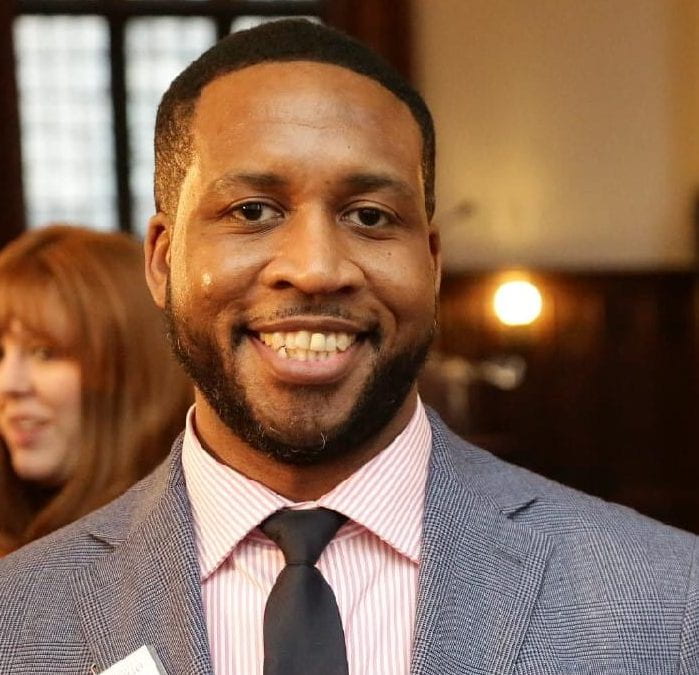August’s spotlight features a conversation with member of Outreach programming, Joel Jackson, Assistant Director, Inclusion & Training. Joel’s relationship with CCHE as a contractor looks like he comes in when the Center needs support in understanding how to better take care of ourselves and our clients, such as assisting with POP, outreach events and has facilitated past staff trainings. As a Compassion Fatigue Professional, Joel has assisted organizations build their interpersonal skills following the idea “if we can take better care of ourselves, then we’ll be able to take care of our patients.”
In his role at the office of Diversity, Inclusion & Equity, social distancing measures in place gave Joel the task of turning 6 1/2 hours of the Capacity Resilience Curriculum in-person facilitation into a half hour digital workshop. While there wasn’t much warning of how drastically the world would change, rolling out these trainings quickly was a proactive step in curating healing during the pandemic. Joel explained to me the importance of strengthening our skills of resilience to help prevent passivity, burnout, or secondary traumatic stress. The trainings equip its participants with tools they can use throughout the day. Using the analogy of antibodies: “we encourage them to practice those skills”. The way we care for our physical body can be used to help our mental capacities. The Capacity Resilience Curriculum also creates space for African-American employees who are experiencing racism and living through a civil rights movement during COVID-19’s pandemic. The trainings take people as they are, in the digital space people are allowed to participate in however they like, video, voice, using the chat box, or even just listening. Joel and his team have also developed the Keep the Conversation Going series including anti-racist and pro-black trainings for UChicago employees, usually sent out on Fridays through their listserv. “Not everybody is on the same level when it comes to issues of Oppression.” With Kimberely Crenshaw’s Theory of Intersectionality in mind, Joel and his team opens the floor for participants to speak their individual truths, understanding that “every individual has their own way of making sense of the world.” The critical discussions in this series of trainings approaches topics from all the perspectives in the room ultimately leading to better understanding of what it means to be Anti-Racist and Pro-Black.
I learned a lot about Joel’s work and the ideas behind it through this interview, I fully left this discussion wanting to experience these trainings first hand. While wrapping up, I asked Joel how he’s been taking care of himself all things considered and found out he was on furlough. I’m grateful he took a break from, distantly visiting family, distantly playing cards with friends, and spending time with his partner to have this conversation with me. “I practice what I preach” he said, and its clear that the mindfulness that exists in in the trainings for Joel, exist in his everyday life as well.
In 2000, Joel was the first man to graduate from Washington’s university women’s study major, and reports memories of being a child that was “always kind of was a fighter for the underdog, which means the internally I’ve always had the value of principles around inclusion and equity in helping people.” His long history in the work shows as he continues to be a part of the force moving us all towards a better future.
